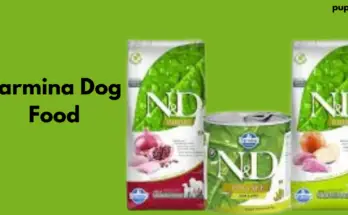Have you ever noticed brewer’s yeast on your dog’s food label and wondered why it’s there? Don’t worry—it’s nothing to stress about! This common ingredient in dog food is often beneficial, but it’s always a good idea to understand what’s going into your dog’s diet. Let’s explore what brewer’s yeast is, why it’s added, and what you should know about it!
What Is Brewer’s Yeast All About?
Brewer’s dried yeast, also known simply as brewer’s yeast, is a byproduct of the beer-making process.
During brewing, Saccharomyces yeast, typically Saccharomyces cerevisiae, is used to break down the sugar in grains and turn it into alcohol. After fermentation is complete, the yeast is filtered out. This leftover byproduct is cleaned, pasteurized, and then sold as a supplement or animal feed additive.
Unlike many other byproducts used in pet food, brewer’s yeast is beneficial for your dog. We’ll dive deeper into that shortly.
It’s important to note that brewer’s yeast differs from other common yeast products. Unlike baker’s yeast, brewer’s yeast is “killed,” meaning it can’t reproduce or cause yeast infections in your dog’s body.
Also, don’t confuse brewer’s yeast with nutritional yeast. While brewer’s yeast is grown on malted barley and grains, nutritional yeast is grown on sugar or beet molasses. It often contains added nutrients, making it tastier but unsuitable for your pet.
Why Brewer’s Dried Yeast Is Used in Dog Food
Like many other food industry byproducts, this ingredient is commonly added to dog food because it provides an affordable source of protein.
It contains over 50% protein by mass, and unlike plant-based proteins, this protein is highly bioavailable to a dog’s digestive system. This makes it a better filler option compared to peas, legumes, or grains.
But protein isn’t the only benefit. This ingredient is packed with essential amino acids, vitamins, and minerals. Unlike synthetic nutrients commonly added to dog food to meet AAFCO standards, the nutrients in this ingredient are more easily absorbed and used by the body.
Studies show that the cofactors found in this ingredient are crucial for the body to effectively use B vitamins. Dogs suffering from B vitamin deficiencies often won’t recover with synthetic B vitamins alone. However, when given natural forms of this supplement, these dogs can quickly regain their health.
Considering how affordable and nutrient-rich it is, it’s no surprise that many dog food manufacturers include it in their recipes.

The Benefits of This Ingredient for Dogs
There are obvious benefits for dog food manufacturers when adding this supplement to their recipes. However, as a dog owner, there are also many great reasons to include it in your dog’s food.
Not only is it rich in essential nutrients, but it also supports various systems in the body, helps repel pests, and offers proven benefits for dogs with certain chronic conditions.
Packed with Nutrients
Brewer’s dried yeast is packed with a wide range of nutrients that are often hard to find in most foods. It’s an excellent source of protein, as well as:
- Chromium
- Iron
- Magnesium
- Potassium
- Selenium
- Zinc
What makes this ingredient especially valuable is its high content of B vitamins, including:
- Biotin
- Folic acid
- Niacin
- Pantothenic acid
- Pyridoxine
- Riboflavin
- Thiamine
Additionally, it provides 15 amino acids, including the ten essential amino acids that dogs need in their diet.
It’s important to note that despite its high B vitamin content, it does not contain vitamin B12, which is essential for DNA production and cell health. Fortunately, B12 is found in meat and eggs, so dogs eating a balanced diet typically won’t suffer from a B12 deficiency.
When selecting a supplement for your dog, choose one that contains only brewer’s yeast and other natural ingredients. Some supplements are “fortified” with synthetic nutrients, but pure, high-quality brewer’s yeast already contains plenty of natural nutrients that are better absorbed by the body.
Helps Keep Fleas and Ticks Away
This ingredient is also widely recognized as an effective natural remedy for fleas and ticks. While the exact way it helps repel these pests isn’t fully understood, there are a few likely explanations.
It’s believed that the same components that promote healthy skin and coat also work to keep biting pests at bay. Healthier skin is harder for insects to penetrate, making it more difficult for them to feed.
Additionally, this supplement contains sulfur compounds, which are known to irritate many bloodsucking pests. Dogs who consume it may have a faint sulfur scent that deters these bugs. Some supplements formulated to fight fleas, ticks, and mosquitoes even include garlic, which likely contributes to creating an odor that pests avoid.
Scientific studies on its effectiveness for this purpose have yielded mixed results. The most reasonable conclusion is that this supplement works well for repelling topical pests in some dogs, but not all.
Promotes Healthy Skin and Coat
All those B vitamins in this supplement make it an excellent choice for supporting skin and coat health. For years, show dog owners and working dog handlers have used it to reduce dry skin, enhance coat shine, and strengthen the skin to minimize injury during physical activity.
It also contains several bioactive peptides that have been researched in the cosmetics industry for their ability to reduce signs of aging and promote healthier skin. Some studies even suggest that these peptides can protect skin cells from UV damage and prevent oxidative damage caused by free radicals.
Additionally, these peptides are known to stimulate collagen production, and combined with its antioxidant properties, this supplement can aid in wound healing.
Supports Healthy Digestion
One well-researched benefit of brewer’s yeast is its ability to support gut health in dogs. It helps in several ways.
While the exact process isn’t fully understood, studies show that this supplement increases enzyme levels in the stomach, which helps the gut digest food more efficiently and can help alleviate diarrhea. Interestingly, this boost in enzymes is also linked to a lower risk of viral infections.
Research also suggests that brewer’s yeast can reduce gut permeability. When the gut becomes inflamed due to food intolerances or other issues, gaps form between intestinal cells, allowing harmful particles like food, bacteria, and debris to enter the bloodstream. This can lead to immune reactions and inflammation throughout the body.
This condition, known as leaky gut syndrome, is common in dogs and is often the cause of chronic allergies. Brewer’s yeast has been shown to reduce these gaps in the intestines, helping to prevent leaky gut syndrome and potentially reducing allergy symptoms in many dogs.
In human studies, it has been found to help with irritable bowel syndrome symptoms. Its ability to enhance enzyme production, reduce gut permeability, and support a healthy gut biome likely plays a key role in these benefits. This supplement could have a similar positive effect on dogs with IBS.

Boosts Immune Health
As dogs age, their immune system can begin to show signs of weakening. One potential solution that has been well-researched is supplementing with brewer’s yeast.
In mouse studies, aging animals that were fed food enriched with brewer’s yeast showed increased numbers of white blood cells and other key immune cells. They also displayed improved immune function after just one month of supplementation.
This effect, combined with brewer’s yeast’s high B vitamin content and its ability to help neutralize viruses in the gut, makes it a great option for boosting immune health in dogs.
Supports Liver and Heart Health
In humans, brewer’s yeast has been shown to help reduce hypertension. In mouse models, it has also been found to lower blood levels of bad cholesterol and triglycerides, both of which are linked to a higher risk of heart attack and stroke.
High cholesterol can also damage liver health, as it is stored in the liver and worsens the effects of fatty liver disease. Mice that consumed a diet with brewer’s yeast had fewer cholesterol deposits in their livers compared to those fed a traditional diet. While fatty liver disease is rare in dogs, it is a common issue in cats, which may also benefit from this supplement.
Boosts Metabolic Health
Non-debittered brewer’s yeast is naturally rich in chromium.
This mineral boosts insulin’s metabolic action, helping to maintain normal blood sugar levels. Chromium supplementation can also aid in weight loss and muscle gain. When combined with its cholesterol-lowering effects, it becomes a valuable supplement for dogs dealing with obesity or metabolic disorders.
Although chromium supplementation’s impact on blood sugar levels in dogs with diabetes isn’t as significant as in humans with type 2 diabetes, this supplement still has the potential to support overall health in these dogs.





